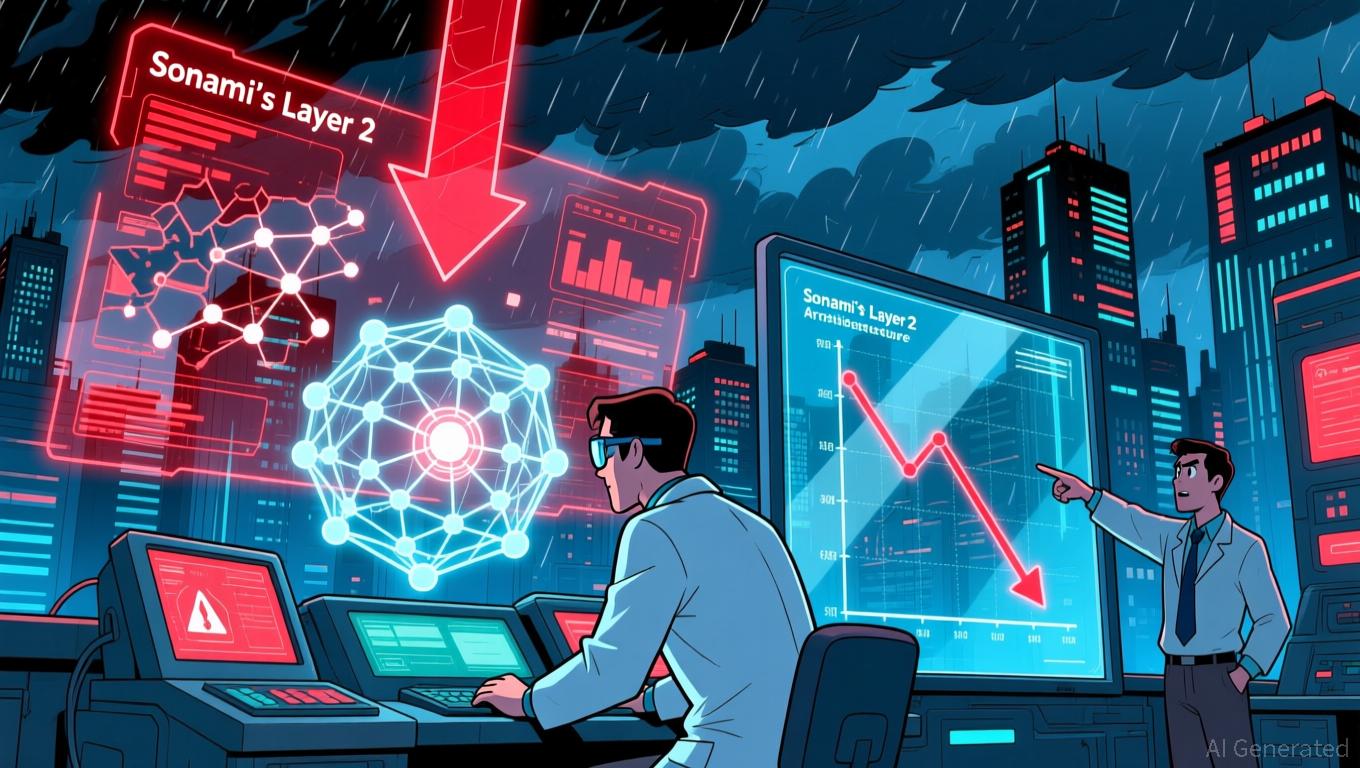Mamdani's Victory Sparks Crypto Sector Resistance, Divides Democratic Party
- Zohran Mamdani, a Muslim democratic socialist, won NYC's mayoral election with 50%+ of the vote, marking a historic progressive milestone. - His tax proposals and crypto mining restrictions drew crypto industry skepticism despite limited direct regulatory authority over the sector. - The victory highlights Democratic Party tensions between progressive grassroots momentum and moderate concerns over centrist voter alienation.
Zohran Mamdani has achieved a landmark win in New York City's mayoral race, becoming the first Muslim candidate to claim the office and strengthening the city's progressive movement. The 34-year-old democratic socialist prevailed over former Governor Andrew Cuomo and Republican Curtis Sliwa, with unofficial tallies indicating Mamdani secured just above half of the total votes. This result was widely expected by crypto prediction platforms, where 92% of Polymarket users had backed his victory before the November 4 election, including a $1 million wager that reflected overwhelming confidence, according to
Mamdani’s campaign, which centered on addressing living costs and implementing progressive tax policies, has sparked both approval and apprehension. His plans call for raising the corporate tax rate to 11.5% and introducing a 2% levy on individuals earning over $1 million per year, which his

The crypto sector has responded warily to Mamdani’s triumph, despite his absence of explicitly anti-crypto measures. Notable industry voices such as Gemini co-founder Tyler Winklevoss and crypto attorney David Sacks have argued that his progressive agenda could hinder innovation and economic growth, according to TradingView. Meanwhile, financial supporters like hedge fund manager Bill Ackman contributed over $1.25 million to PACs opposing Mamdani, concerned that his tax proposals might discourage business investment, as noted by industry sources. Nevertheless, legal analysts highlight that the mayor’s authority over crypto regulation is limited, with most regulatory power held at the state and federal levels.
Mamdani’s success also has ramifications for the national Democratic Party. His primary win in June was celebrated as a milestone for grassroots progressive activism, earning endorsements from leaders such as Barack Obama and Kamala Harris, according to
Surveys consistently placed Mamdani well ahead in the general election, with prediction sites like
With the city preparing for his inauguration on January 1, 2026, attention turns to his capacity to negotiate tax and crypto reforms at the state level. Although his progressive platform faces significant obstacles, Mamdani’s election marks a turning point for both New York’s political direction and the Democratic Party’s national strategy.
Disclaimer: The content of this article solely reflects the author's opinion and does not represent the platform in any capacity. This article is not intended to serve as a reference for making investment decisions.
You may also like
DeFi Faces Stability Challenge: USDX Redemption Issues Reveal Underlying Systemic Risks
- Whale investor 0xe454 spent $800,000 to buy 933,241 USDX tokens during its 2025 depeg to $0.3887, betting on recovery. - Redemption delays for both recent and prior 1.4M USDX purchases raised concerns over protocol stability and liquidity risks. - Lista DAO's emergency vote (LIP 022) aims to liquidate USDX positions amid 800% borrowing rates, mirroring 2025 xUSD collapse risks. - Experts warn cross-collateralized DeFi structures amplify systemic risks, urging stronger collateral diversification to preven

Fed’s QE Strategy: Could AI Mania Lead to a Repeat of the 1999 Bubble?
- Billionaire Ray Dalio warns Fed's shift to QE risks inflating an AI-driven bubble akin to 1999's dot-com crash. - He criticizes reinvesting MBS proceeds into Treasury bills as monetizing debt while cutting rates amid large fiscal deficits. - Analysts highlight risks of reduced T-bill supply, lower yields, and repo market strains from Fed's $15B/month Treasury demand. - AI sector valuations and corporate earnings will test Dalio's concerns as November inflation data and PMI reports approach.

Solana Latest Updates: Sonami Advances Layer 2 Despite Solana’s Unstable Market Forecast
- Sonami ($SNMI) launched a Solana Layer 2 token to reduce congestion and boost efficiency, raising $2M in presale. - The $0.0019 token allocates 83B tokens for marketing, treasury, and development, targeting high-frequency DApps. - Solana's price fluctuated between $170-$190 amid upgrades and macroeconomic factors, with bearish derivatives signals noted. - Sonami's Layer 2 initiative aligns with Solana's scalability goals, supporting 2,500 developers and enterprise applications. - Presale success reserves

Solana News Update: Sonami's Layer 2 Seeks to Restore Solana's User Base Amid Intensifying Competition
- Sonami ($SNMI) announced a continued token presale and launched Solana’s first Layer 2 token to address scalability issues. - The project aims to reduce congestion by bundling transactions, raising $2M at $0.0019 amid Solana’s 30% Q3 user decline. - 40% of 82.999B tokens allocated for development/listings; team includes Solana veterans and fintech experts. - Presale success reflects investor confidence in Solana’s growth amid Layer 2 competition from Ethereum-based rivals.
